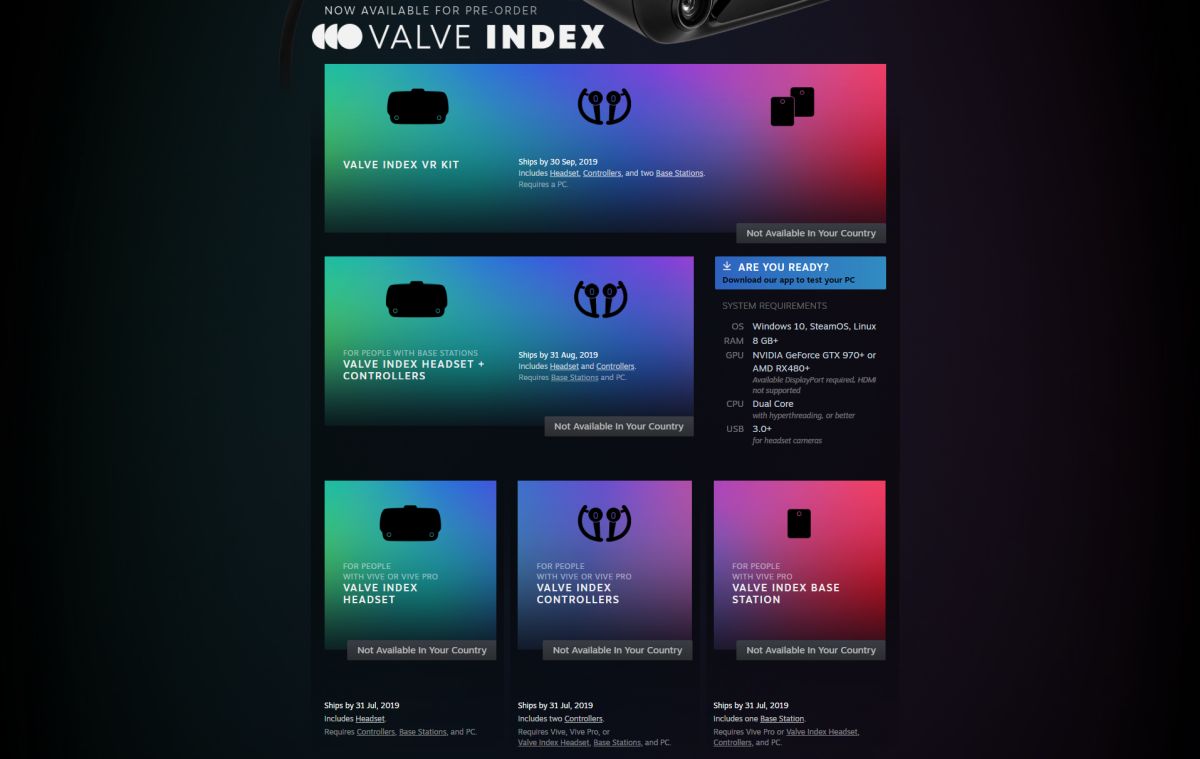From its design, it seems Valve has taken some consideration in the Index’s design. The headset is still a tethered device, but only utilises a 5-metre cable that plugs directly in to the gaming rig and another that plugs into the headset’s base stations. Valve says that the Index is focused on delivering the “highest fidelity VR” experience possible. To that end, the RGB LCD displays inside the headset have a resolution of 1440 x 1600, but more importantly, they run at a refresh rate of 120Hz. There’s also a 144Hz mode inside the headset, but Valve has said that this mode is still experimental. On that note, Valve says that the Index is still backwards compatible with VR games optimised for 90Hz displays.
For audio, Valve seems to have gone a slightly different route from the norm; rather than design a pair of headphones that rests on your ears, the speakers on the Index uses an off-ear design. Hovering a distance from the ears, without ever touching them. Valve Interaction and motion detection are handled via two controllers previously known as “Knuckles”, and two base stations using the developer’s laser-based Lighthouse technology. Price-wise, the Index alone costs US$499 (~RM2064). The Index Controllers can also be purchased separately at a price of US$279 (~RM1154), while the Index base stations retail at US$149 (~RM616) independently. You can also purchase the full set, but that alone will set you back US$999 (~RM4132).
Sadly, the Valve Index is currently not available in Malaysia, and there’s still no word if or when the company intends to bring its headset to our shores. (Source: Valve via Hot Hardware, The Verge)

